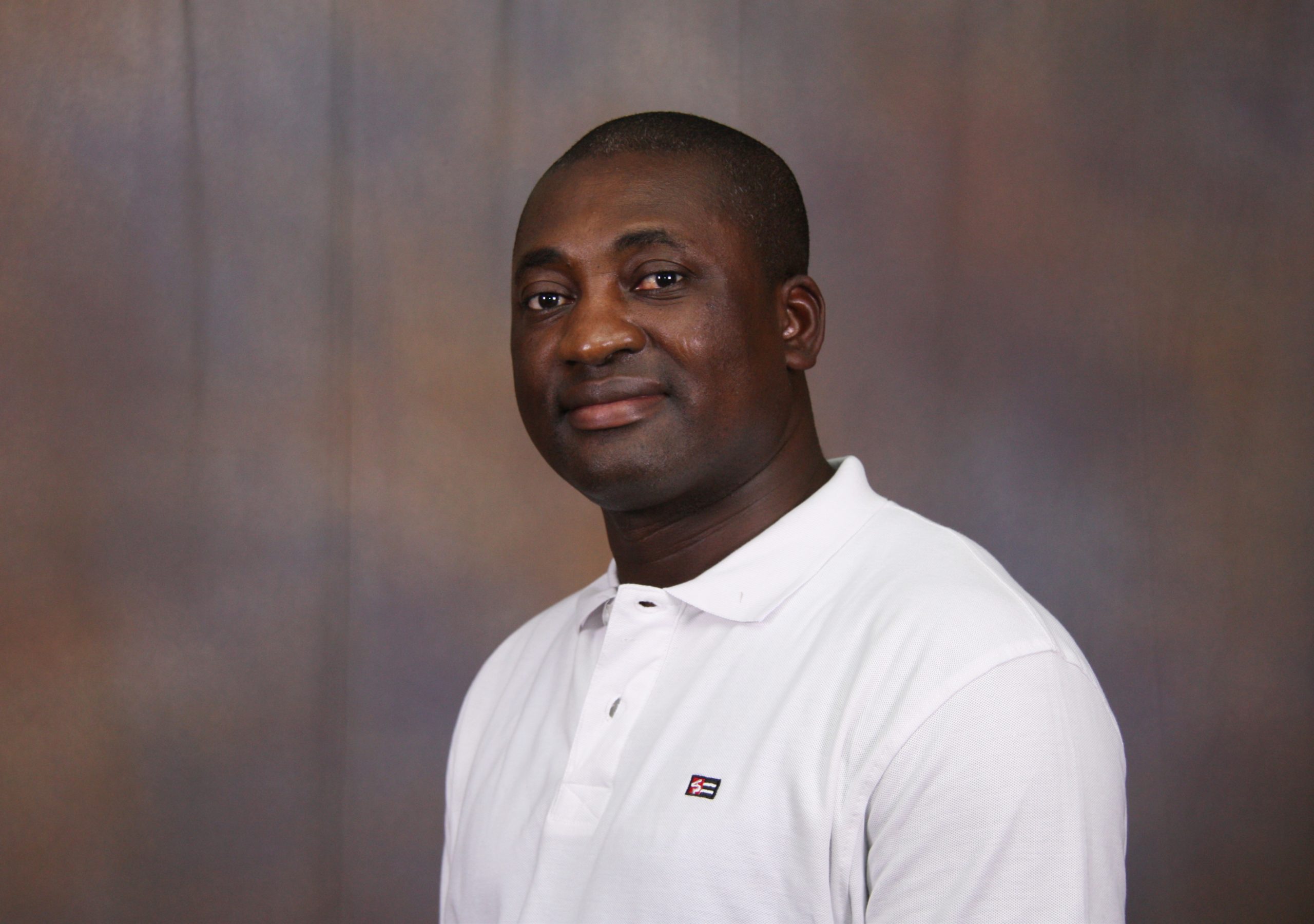Having started out as a visiting assistant professor in the Department of Political Science, Dr. Hayford Nsiah chose to extend his time at Auburn by becoming a lecturer for the department. Currently, he is in the middle of his second year in this position. Wishing to get more involved on campus, Dr. Nsiah joined the Peers Network this past year.

Dr. Hayford Nsiah
Getting Involved with the Peers Network
Simply put, Dr. Nsiah says he decided to become a Peers Ambassador to make an impact in Auburn and beyond. He also explains that he has seen the world converging towards sustainability at an ever-increasing rate, making sustainability an inevitable and integral part of our future. Dr. Nsiah believes being sustainable is not something we SHOULD do, but rather something we NEED to embrace.
Before becoming a Peers Ambassador, Dr. Nsiah’s primary experiences with sustainability fell in the economic and social parts of the Sustainability Compass. His political science background along with his own research allowed him to assess the relationship between sustainability and socioeconomic developments, further increasing his interest in sustainability.
So far, Dr. Nsiah’s favorite experience from the Peers Network has been the training. He says the training session shed light on different perspectives around sustainability that he had not considered. Dr. Nsiah also enjoyed learning about the Wellbeing aspect of sustainability, a side of sustainability he had not been exposed to. For Dr. Nsiah, this training and the ones to follow provide a unique opportunity for the Peers Ambassadors to both share their passion and learn how to put it into action.
Working Toward Change
Around Dr. Nsiah’s area of Haley, the faculty and staff already practice several sustainable habits. However, their primary focus and success has been energy conservation. Most, if not all, of the rooms of Dr. Nsiah’s area, utilize motion sensor lights, thereby reducing power costs. Beyond simple practices such as this, Dr. Nsiah says his unit encourages everyone to make a conscious effort to reduce energy consumption. Its this culture of accountability for personal sustainability that is necessary for the success of other sustainability initiatives.
Since joining the Peers Network, Dr. Nsiah’s first contribution has been participating in the Battery Recycling Program. The Department of Political Science office on the seventh floor of Haley is home to one of many battery collection buckets across campus. This is just the first of several sustainability practices that Dr. Nsiah hopes will be implemented in Haley.
Sustainability Challenges and Inspiring Initiatives
Having gained more knowledge of sustainability, Dr. Nsiah has reached the same realization as many other enlightened sustainability supporters. That realization being that an overall lack of information is the greatest challenge to sustainability efforts. More specifically, the lack of awareness for how broad sustainability really is and how many participate in sustainable habits without even realizing it. Dr. Nsiah hopes that as more people come to realize this, being sustainable will be something we do without even thinking about it.
In and around Auburn, there are many sustainability initiatives in place. However, Dr. Nsiah believes the Waste Reduction and Recycling Department is the most impressive example of Auburn sustainability. This department is not only responsible for handling our waste from all across campus, but also goes the extra mile to ensure our recycling is done as effectively and efficiently as possible. From the various types of recycling cans to the annual Waste Audit to the, the Waste Reduction and Recycling Department is a major component of Auburn’s sustainability. It is the department’s behind the scenes actions combined with their broad range of sustainable activities that make the Waste Reduction and Recycling Department Dr. Nsiah’s favorite part of Auburn sustainability.
Post Contributed by Taylor Kraabel, Office of Sustainability Employee Engagement Coordinator




